Poor People’s Campaign Remains Rich in Hope: Profiles of the Optimistic
Michael Nigro / Truthdig June 25, 2018 19 photos-
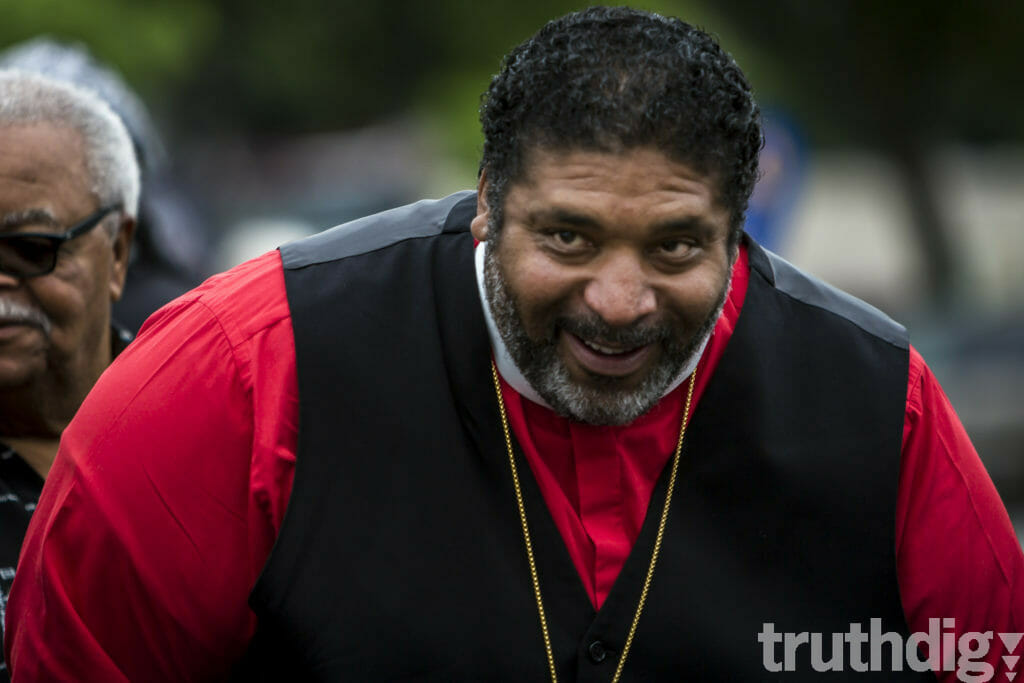
“There is no place in our moral constitution or Scripture that says that the first priority of power ought to be what you can take from people.”
-
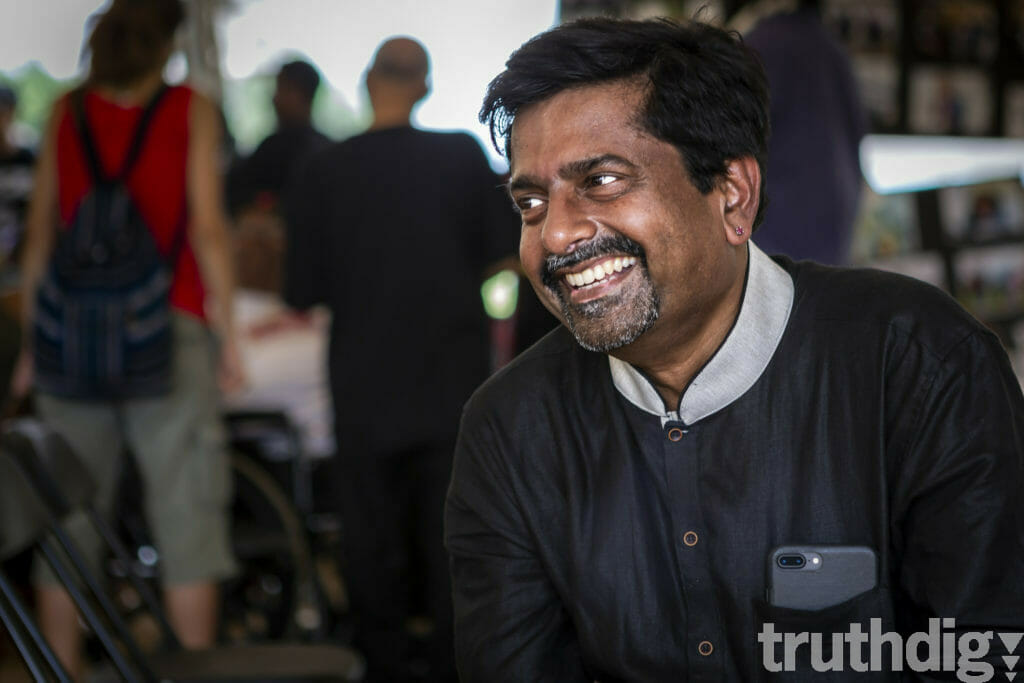
The Rev. Janamachi reflects on the success of political action in the face of historical marginalization. “We cannot lose hope. To me, hope is not wishful thinking, but is a resilient act of resistance.”
-
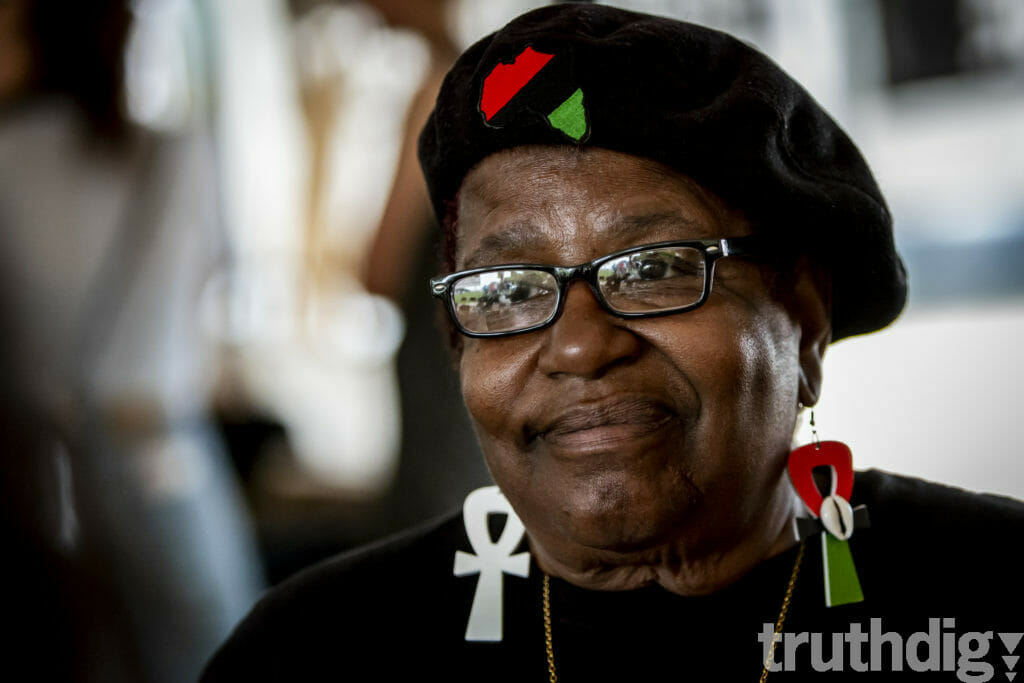
“I have been struggling for 60 years. I am co-chair of National Welfare Rights. We have been out here a long time. We were in the first Poor People’s Campaign, and let me tell you how good my creator is, my God is. He got me here for this one.
-
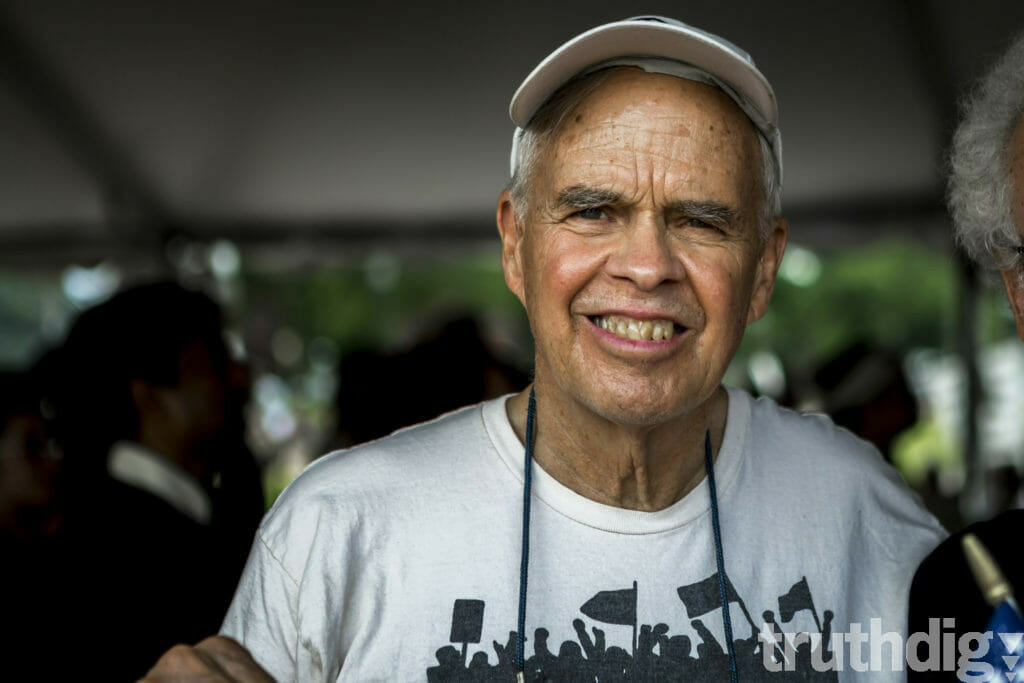
“It was a privilege working on that poor people’s campaign,” reminisces Hartsough, a member of Martin Luther King Jr.’s original campaign. “But unfortunately, there are more people living in poverty now than in 1968.”
Hartsough says of the revival of King’s mission, “We hope this is the beginning of a massive, long-term movement by the American people.”
-
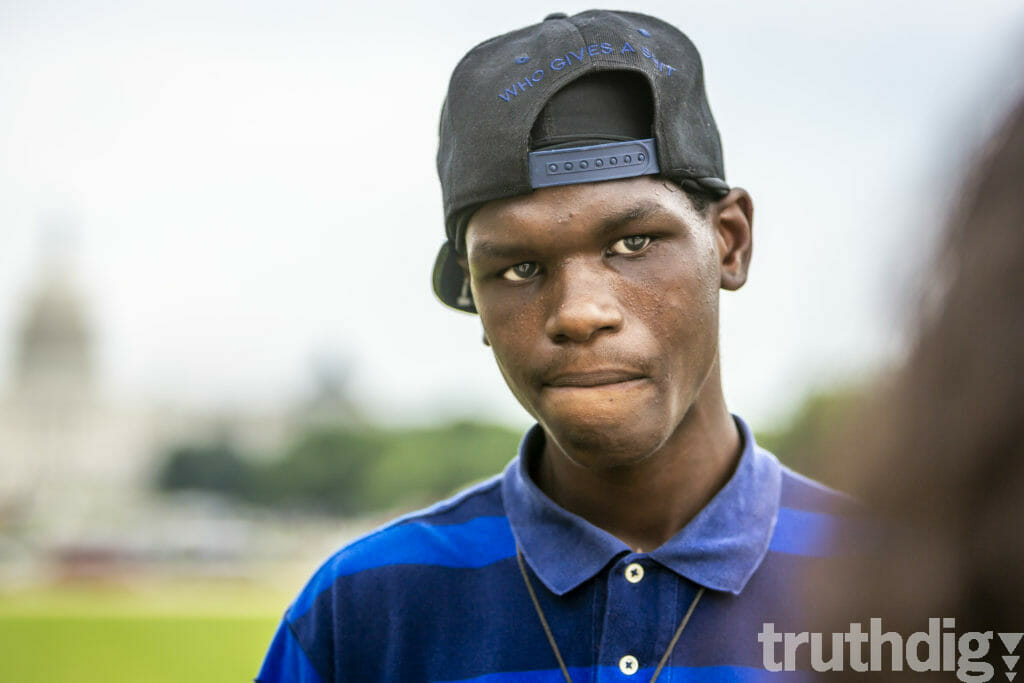
Gains shares how he became involved with activism after his first protest. “When I went there, I felt out of place. Why are we putting our lives at risk trying to go to jail? And then the killings started to happen with black people. I looked down from this beautiful world that I imagined and looked at my skin. I could be next.”
-

“My brother, Andrew Goodman, was murdered by the Ku Klux Klan, along with Michael Schwerner and James Chaney. The Klan murdered my brother because they wanted to maintain a way of life that was to the exclusion of African-Americans. … We’re still fighting the same issues—voter suppression, racism—in different forms now. Today, you don’t go up to someone and shoot them with a gun like the Ku Klux Klan did, who were also sheriffs, so they worked for the state of Mississippi, in the case of the people who murdered my brother. Now the state is withholding health insurance. And we know that 5 to 10 percent of the people who have no health insurance die early. That’s a form of state-sanctioned murder.”
-

Blakely reflects on politicians historically underserving impoverished communities: “We can’t reform this system at this point. We need a vision of a new system, one that does not leave anybody out.”
-
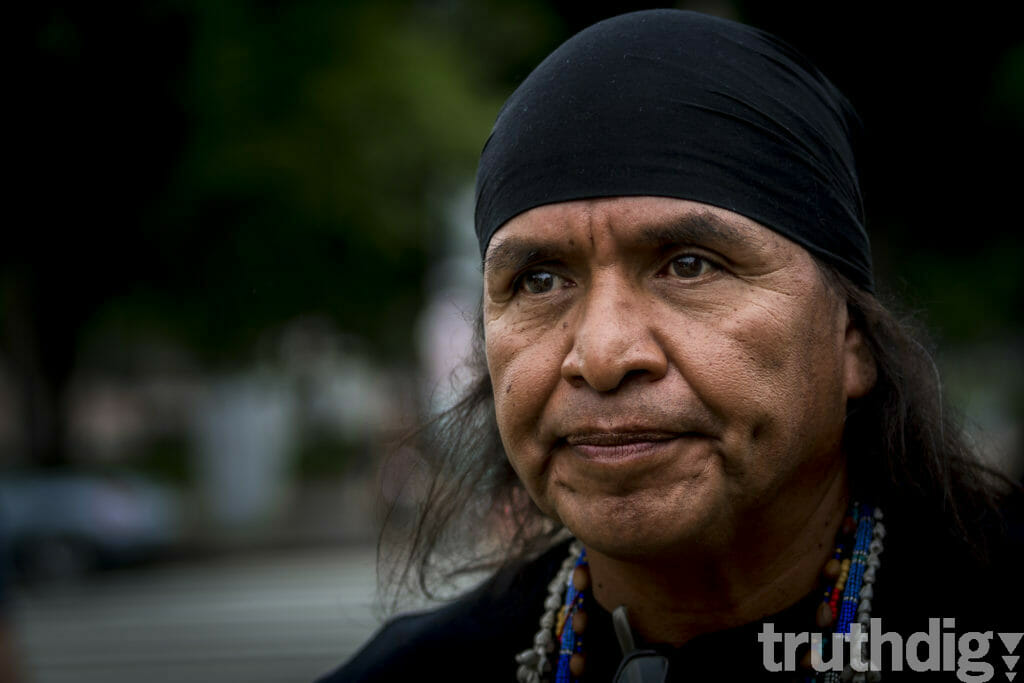
Nosie reflects on the disenfranchisement of his people. “Native people are here, and we have been long forgotten.”
In the face of a subjugated past, Nosie expresses hope for the future of the movement and Native American people. “We do not have another opportunity.”
-

“There are a lot of people who are dealing with many issues and no one really cares to ask them how they feel about it—or what they think about it. Hearing people say ‘I feel seen’ is really the power of this campaign.”
-

“There is finally a campaign that is seeking to come back and find the intersectionality of poverty, the war economy, ecological devastation and systemic racism. I don’t believe you can address one without the other,” the young organizer says. “That’s why I originally joined.”
-
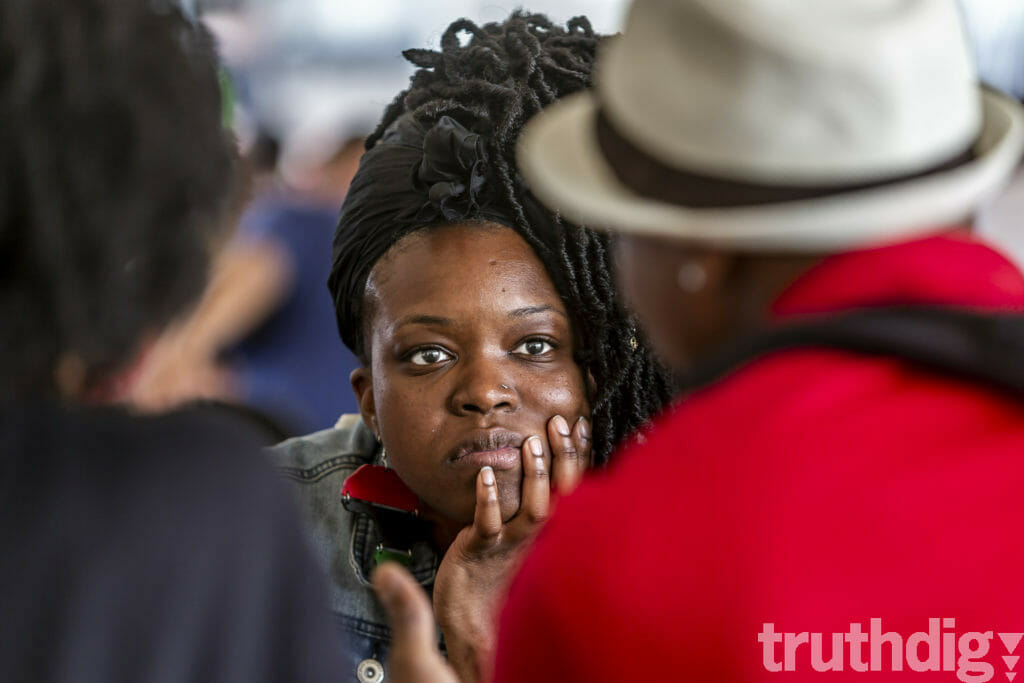
“I am a directly impacted person. I have experienced job loss recently, and it caused me to have a very extreme struggle with poverty. I had graduated from college a couple years ago so I have a lot of student debt. All of those things coupled with losing a job, it just shows even when you do the right thing the right way, it doesn’t save you from falling into poverty.”
Nanton reveals her thoughts on using the political process despite past injustices. “People have an investment in making the political process work for them. The process has failed us,” says the millennial organizer. “It is not that we don’t want a political process. We want one that is democratic.”
-

“I was pregnant with twins and lost both my babies due to drinking the contaminated water,” Wakes says, reflecting on the personal price she paid in the Flint water crisis. “It’s not only lead in the water. It’s systemic poverty, and we need to fight together.”
-
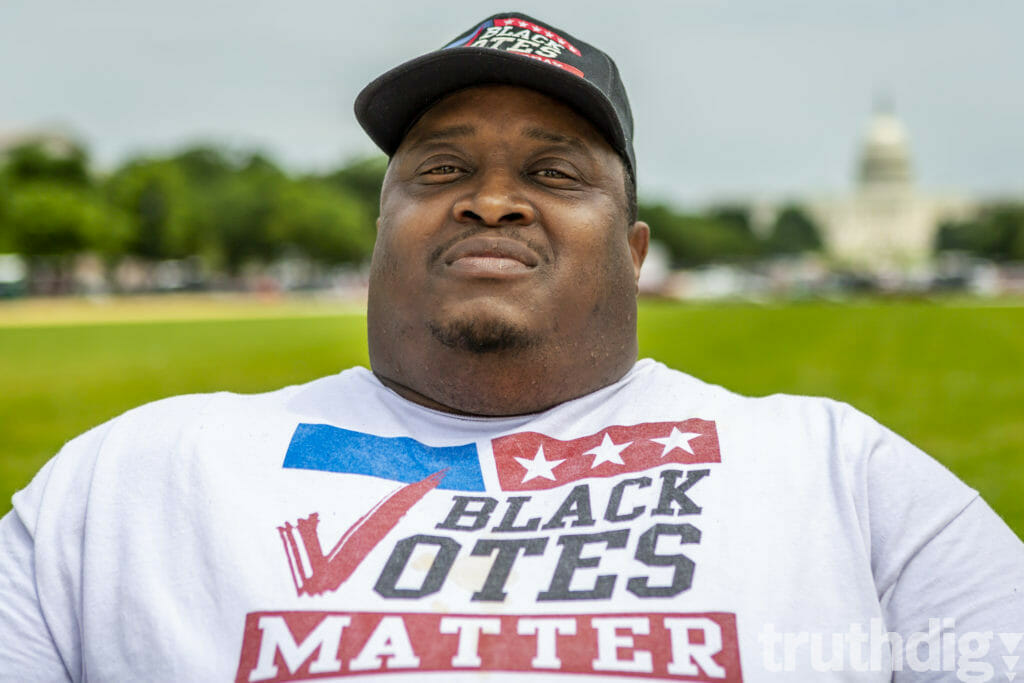
“We believe in the power of your vote. Your vote is your voice,” says the Ohio minister, clad in a “Black Votes Matter” T-shirt and matching hat. “We feel your voice, we feel your anger, but direct it toward the people who most effectively need to hear it. Put the pressure on them.”
-
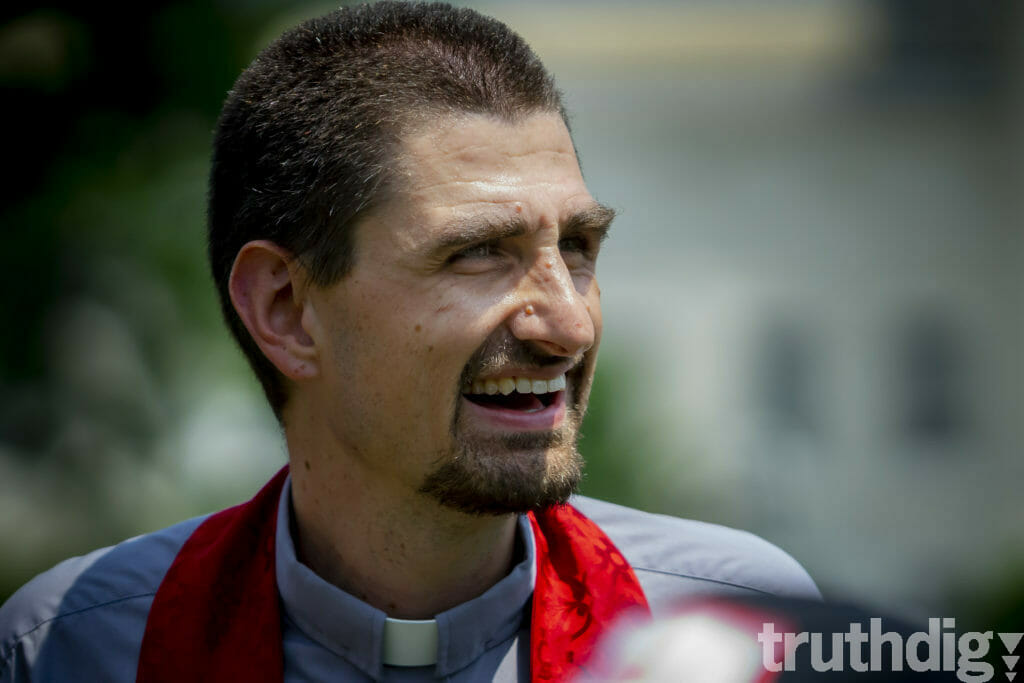
“[U.S. Ambassador to the U.N.] Nikki Haley objects to a U.N. report that names [the] poverty crisis in the U.S. and [that] says current policies are making it worse. The Poor People’s Campaign says not only do we believe it, we’re living it. It’s gone on far too long, and we won’t be silent anymore.”
-
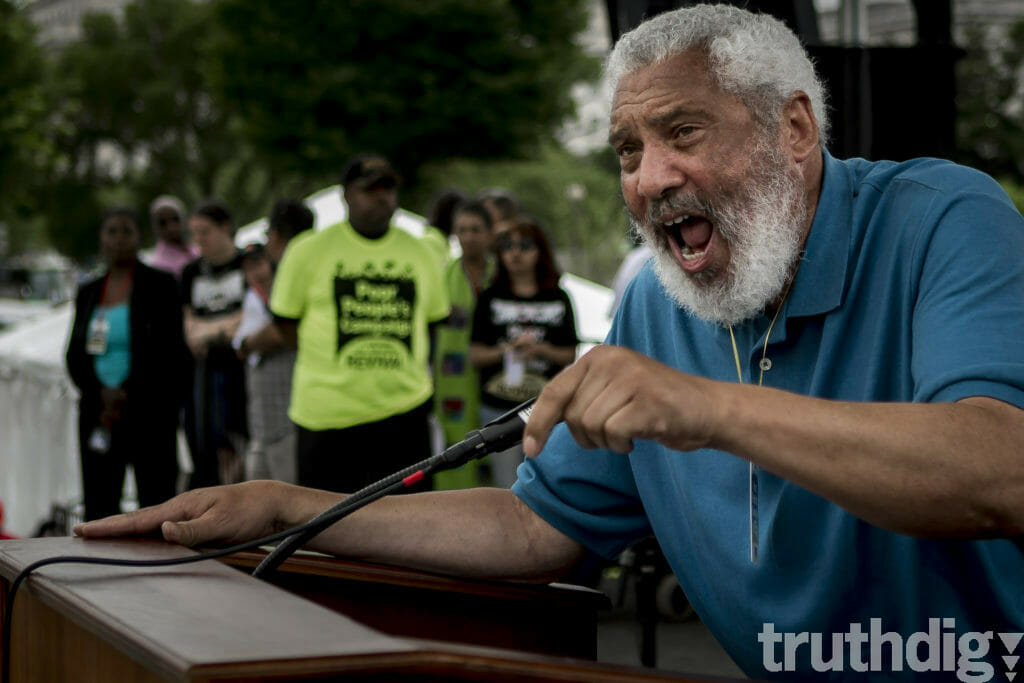
The Rev. Hagler, who was recently arrested after protesting the Supreme Court’s decision to allow Ohio to purge its voting rolls, speaks out about the importance of political engagement. “The political institutions will never do anything without being pushed,” he says.
-
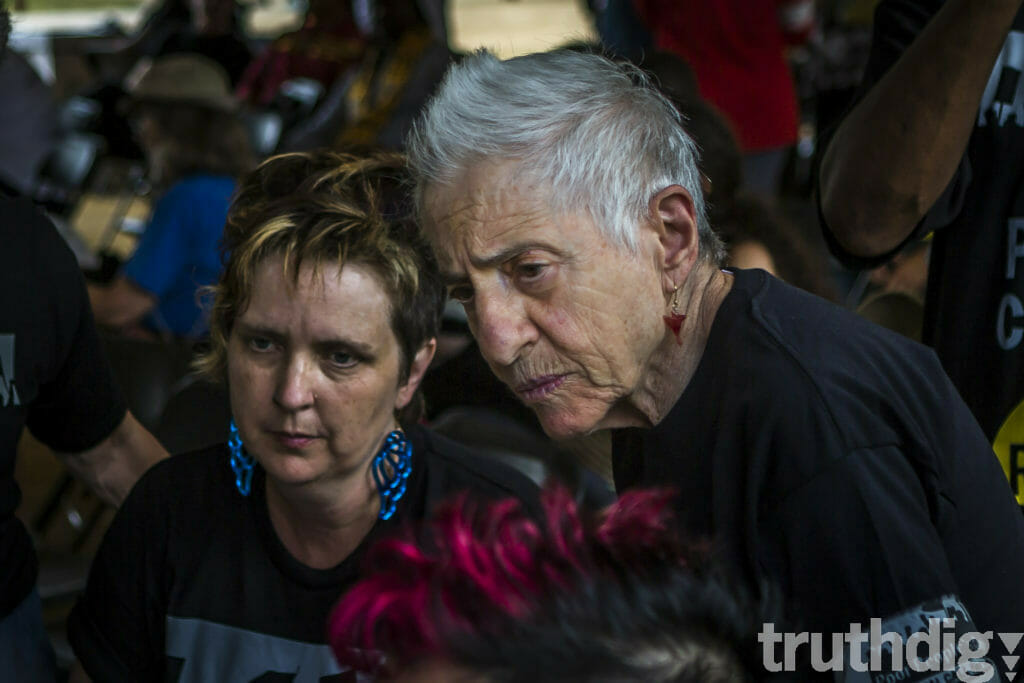
Zaleh, also a member of Raging Grannies, reflects on her place in the Poor People’s Campaign: “I am a white woman of privilege. Until every woman has the privilege that I have, I am going to continue speaking up.”
Zaleh sees voting as a key way to enact change in our current political climate. “We’ve got to get everybody out to vote! Even though they are gerrymandering the voting and doing everything to keep people away, we’ve got to fight back stronger.”
-

“Indigenous people are called Native Americans, but we were here before the idea of America. … My voice is small, but it has a thousand ancestors behind it.”
-
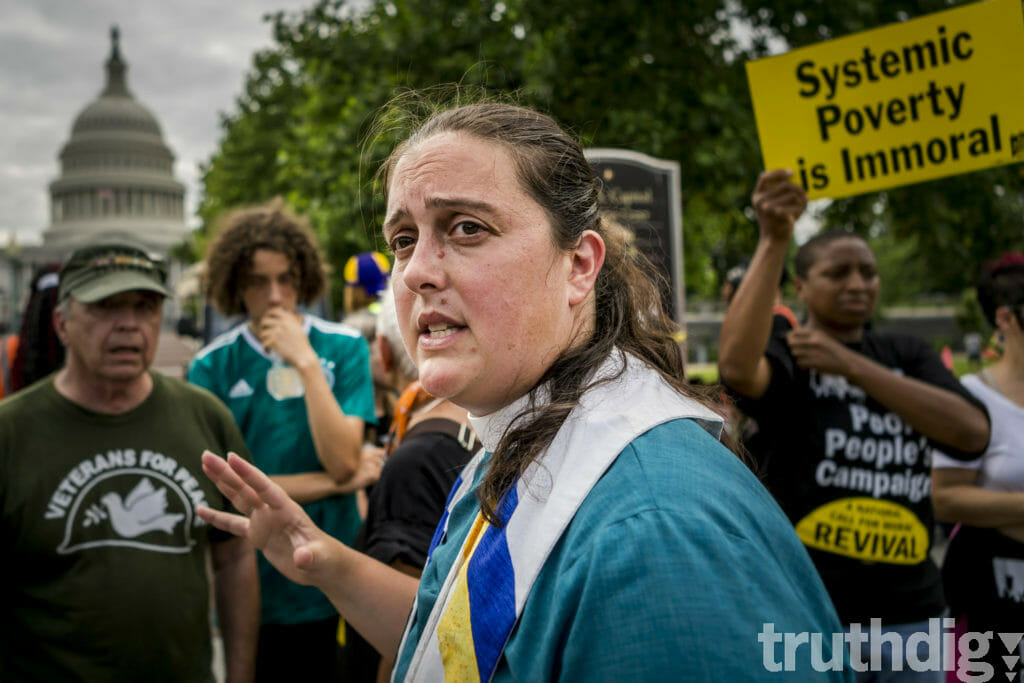
“The people are rising up in this country in 40 states. People have been engaged for 40 days and are committed to the long haul.”
-
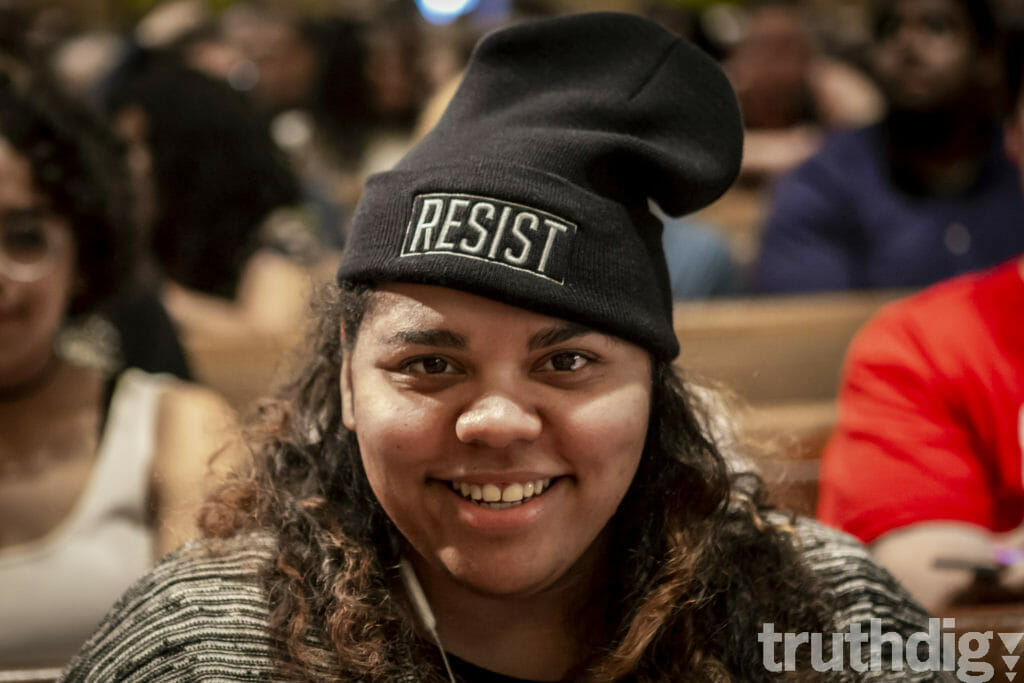
As the culminating action of the revival takes place around her, Battle asserts the fight isn’t over. “For me, it does not feel like a finish. It feels like a beginning.”